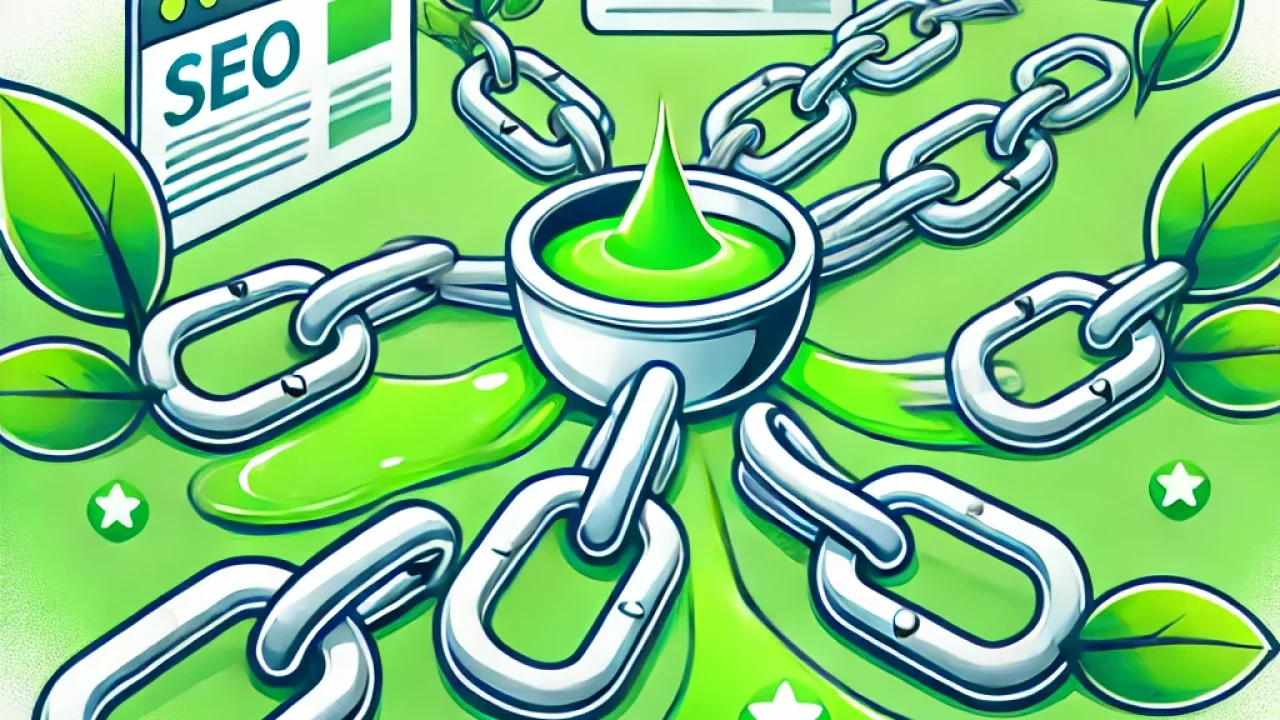Learn how to boost your SEO with effective link juice distribution. Understand link juice, how it impacts rankings, and the best strategies for distributing link equity to improve your website’s Authority.
Regarding SEO, link juice is among the most powerful and often overlooked factors. Properly distributing link juice across your website can significantly boost your search engine rankings and improve your overall Authority. In this comprehensive guide, you will learn what link juice is, how it works, and the most effective distribution strategies to enhance your SEO performance.
What Is Link Juice?
Link juice refers to the value or equity passed from one webpage to another via hyperlinks. When a page on your website receives a backlink from an external site, some of that site’s Authority (or “juice”) is transferred to your page. This process helps search engines like Google determine the credibility and relevance of your pages. The more high-quality links you receive, the more link juice your website accumulates, which can help improve its ranking in search engine results pages (SERPs).
Not only do external backlinks transfer link juice, but internal links within your website also play a crucial role in distributing this equity across different pages. Effectively managing and distributing link juice within your site ensures that your most important pages receive enough Authority to rank well in search engines.
Why Link Juice Is Important for SEO
Link juice is one of the key factors that influence your SEO performance. Here are several reasons why understanding and managing link juice is essential:
- Boosts Search Engine Rankings: When your website receives quality backlinks, the link juice transferred can increase your site’s Authority, leading to higher rankings in search results.
- Improves Page Authority: Distributing link juice across your site ensures that more pages gain Authority, increasing the likelihood of ranking for different keywords.
- Enhances Crawlability: Search engines use links to crawl websites. Effective link juice distribution helps search engines discover and index more of your content, improving your site’s overall visibility.
- Supports SEO Strategy: Link juice is a natural outcome of link-building efforts, and managing it helps you get the most out of both external and internal links, strengthening your entire SEO strategy.
The Role of Link Juice in Website Authority
Website authority is a major factor in SEO, and link juice plays a central role in determining how authoritative your site is. When a high-authority website links to your content, it signals to search engines that your page is valuable and trustworthy. The more authoritative the linking site, the more link juice your site receives, which can significantly improve your Authority in the eyes of search engines.
Link juice also contributes to Domain Authority (DA), a metric developed by Moz that predicts how well a website will rank in search engine results, when your site accumulates link juice from multiple reputable sources, your Domain Authority increases, leading to better SEO performance.
How Internal Linking Impacts Link Juice Distribution
While external backlinks are critical for gaining link juice, how you distribute that juice internally across your website is equally important. Internal linking refers to linking one page of your website to another, which helps distribute the Authority your site receives from external sources.
By strategically placing internal links, you can ensure that your most important pages (product pages, high-converting landing pages, or cornerstone content) receive a healthy link flow. This helps these pages rank better for targeted keywords, driving more organic traffic to your site.
Advantages of Internal Linking for Link Juice Distribution
- Increases Page Authority: Internal linking allows you to transfer link juice from higher-authority pages to newer or less authoritative pages, helping them rank better.
- Improves Website Structure: Well-planned internal links make navigating your site easier for users and search engines, enhancing the overall user experience and crawlability.
- Distributes Authority Efficiently: Internal linking provides a way to ensure that link juice is spread across your site evenly, so every single page is optimized while others remain neglected.
- Promotes Older Content: Linking to older blog posts or evergreen content helps keep those pages relevant and visible while allowing them to benefit from new link juice.
How Link Juice is Distributed Through Internal and External Links
Link juice is distributed through both internal and external links. Understanding how to manage link juice flow between pages is essential for maximizing SEO benefits.
Internal Links:
Internal links are hyperlinks that connect different pages within the same website. They help distribute link juice across your site, allowing you to boost the Authority of important pages. Proper internal linking ensures that pages deep within your site receive link juice from high-authority pages, improving their visibility in search results.
External Links:
External links, or backlinks, are links from other websites to yours. These links transfer link juice from external sources, significantly improving your website’s domain authority. The more reputable the external site, the more link juice it passes to your site, making external backlinks a valuable part of your SEO strategy.
Key Takeaway:
Link juice is distributed through both internal and external links. Internal links help distribute Authority across your site, while external links from authoritative sources enhance your site’s overall ranking power.
Strategies for Effective Link Juice Distribution
To get the most out of your link juice, it’s essential to have a well-thought-out strategy for distributing it across your website. Here are some of the most effective strategies to maximize link juice distribution:
1. Create a Logical Internal Linking Structure
A clear and logical internal linking structure helps search engines, and users understand the hierarchy of your website. Start by identifying your most important pages and ensure they are linked to other relevant pages. A well-structured internal linking strategy helps distribute link juice to key pages while improving the overall usability of your site.
- Actionable Tip: Use breadcrumb navigation and footer links to improve site architecture and distribute link juice more evenly.
2. Focus on Anchor Text Optimization
The anchor text—the clickable text in a hyperlink—significantly transfers link juice. Using descriptive and relevant anchor text helps search engines understand the context of the linked page, improving its chances of ranking for relevant keywords.
- Actionable Tip: Avoid over-optimizing your anchor text with exact-match keywords. Instead, use natural, varied anchor text that accurately describes the linked content.
3. Leverage Deep Linking
Deep linking refers to internal pages within your website rather than just linking to the homepage or top-level pages. This helps distribute link juice more effectively to under-optimized pages that need a boost in Authority.
- Actionable Tip: Identify pages that are valuable but aren’t ranking as high as they should—link to these pages from more authoritative pages to improve their ranking potential.
4. Fix Broken Links
Internal and external broken links can lead to a loss of link juice and negatively impact your SEO. Fixing broken links ensures that link juice flows smoothly throughout your website, preventing any loss of Authority.
- Actionable Tip: Use tools like Google Search Console or Screaming Frog to regularly audit your site for broken links and fix them as soon as possible.
5. Use NoFollow Tags Wisely
Sometimes, you should prevent certain links from passing link juice. Adding a “nofollow” tag to specific links tells search engines not to pass link equity to that page. This can be useful for pages like login forms, privacy policies, or unimportant external links.
- Actionable Tip: Use the nofollow attribute sparingly and only for pages where passing link juice is not necessary or beneficial.
The Role of Page Authority and Domain Authority in Link Juice
Page Authority (PA) and Domain Authority (DA) are important metrics influencing how many links juice a page can pass. Pages and domains with higher Authority pass more link juice to the pages they link to, improving their ranking potential.
How PA and DA Affect Link Juice:
- High-Authority Pages: Pages with high PA pass more link juice when they link to other pages. Focus on building internal links from these pages to key areas of your site.
- Domain Authority Impact: Backlinks from domains with high DA carry more link juice and provide a stronger ranking boost to your site.
- Linking from High-PA Pages: Within your site, prioritize linking from pages that have earned high PA to ensure valuable link juice is passed to other important pages.
Key Takeaway:
The higher the page or domain Authority, the more link juice it can pass, making it important to earn backlinks from high-DA sites and link internally from high-PA pages.
- Better Rankings Across More Pages: By distributing link juice effectively, you can improve the Authority of multiple pages across your site, allowing them to rank higher in search results.
- Increased Organic Traffic: More page ranking for targeted keywords means more opportunities to attract organic traffic, which can lead to higher engagement and conversions.
- Optimized User Experience: A well-structured website with properly distributed link juice improves navigation, ensuring users can find the content they need quickly and easily.
- Higher Page Authority: Distributing link juice across your internal pages helps elevate the Authority of those pages, improving their SEO performance and long-term visibility.
How External Links Impact Link Juice
While internal links help distribute link juice within your site, external links play a key role in generating link juice in the first place. When a reputable website links to your content, it passes some of its Authority to your site, which helps improve your SEO performance.
However, not all external links are created equal. High-quality backlinks from authoritative websites pass more link juice than low-quality links from spammy or irrelevant sources. Building a strong backlink profile is essential for improving your SEO.
- Actionable Tip: Focus on acquiring backlinks from reputable sources such as industry publications, influencers, and well-known blogs to maximize the link juice your site receives.
Key Benefits of Link Juice for SEO Rankings
Link juice is among the most influential factors in improving your website’s SEO rankings. When managed correctly, it significantly benefits your website’s overall performance.
Benefits of Link Juice for SEO:
- Boosts High-Value Pages: Link juice helps you prioritize key pages (e.g., product pages or landing pages) that you want to rank higher.
- Passes Authority: By linking to relevant and authoritative content, you pass Authority between pages, which enhances your site’s credibility.
- Improves Indexation: Link juice aids in the indexing of new or deep-level pages by ensuring they receive enough internal links to get noticed by search engine crawlers.
- Builds Trust and Relevance: Search engines view pages that receive link juice from high-quality external sites as more trustworthy and relevant.
Key Takeaway:
Link juice boosts important pages, passes Authority, improves indexation, and builds trust and relevance, all essential for improving your site’s SEO rankings.
How Link Juice Influences Google’s PageRank Algorithm
Google’s PageRank algorithm is one of the foundational elements of how search rankings are determined, and link juice plays a critical role in how PageRank is calculated. Each link is viewed as a vote of confidence, with higher-quality links carrying more weight.
How Link Juice Impacts PageRank:
- Authority Transfer: Pages with high Authority pass more link juice, positively impacting the PageRank of the pages they link to.
- Link Structure: The overall structure of internal and external links on your site determines how PageRank is distributed across your pages.
- Backlink Quality: The quality of backlinks (not just quantity) is a major factor in how much link juice is passed, influencing your PageRank score and SEO performance.
Key Takeaway:
Link juice is a critical factor in Google’s PageRank algorithm, with higher-quality links passing more Authority and improving your SEO rankings.
Common Mistakes in Link Juice Distribution
While link juice distribution can greatly enhance your SEO, several common mistakes can negatively impact your efforts. Here are some mistakes to avoid:
- Overuse of Nofollow Tags: Using nofollow tags too often can block link juice flow and prevent key pages from receiving the Authority they need.
- Ignoring Internal Linking Opportunities: Failing to link to important internal pages can leave valuable pages under-optimized and prevent them from ranking well.
- Focusing Only on External Links: While external backlinks are crucial, focusing solely on them without considering internal linking can lead to imbalanced link juice distribution.
- Poor Site Structure: A disorganized or overly complex website structure can make it difficult for search engines to crawl and distribute link juice effectively.
Frequently Asked Questions About Link Juice
- What is link juice in SEO?
Link juice refers to the Authority or value passed from one page to another through hyperlinks. This link equity helps improve the receiving page’s ranking in search engines. - How can I improve the link juice on my website?
You can improve link juice by building high-quality backlinks from authoritative sites, optimizing internal linking, and fixing broken links to ensure smooth link flow. - Does nofollow prevent link juice from being passed?
Using the Nofollow attribute on a link tells search engines not to pass link juice to the page. - What happens if I need more broken links?
Too many broken links can result in lost link juice, making it harder for your website to build Authority and rank well in search results. - How do I distribute link juice internally?
Distribute link juice internally by creating a logical internal linking structure, using deep links, and ensuring important pages receive the most link juice.
Reminder: Link Juice Distribution Is an Ongoing Process
Remember that effective link juice distribution requires consistent effort. Regularly audit your site for broken links, build high-quality external links, and optimize your internal linking structure to ensure that link juice flows effectively throughout your site.
Conclusion: Maximize Your SEO with Effective Link Juice Distribution
Effective link juice distribution is one of the most impactful strategies for improving SEO performance. By building high-quality backlinks, optimizing internal linking, and distributing link juice strategically across your website, you can boost your rankings, drive more organic traffic, and enhance your site’s Authority. Implement the strategies outlined in this guide to take full advantage of link juice and achieve long-term success in your SEO efforts.






